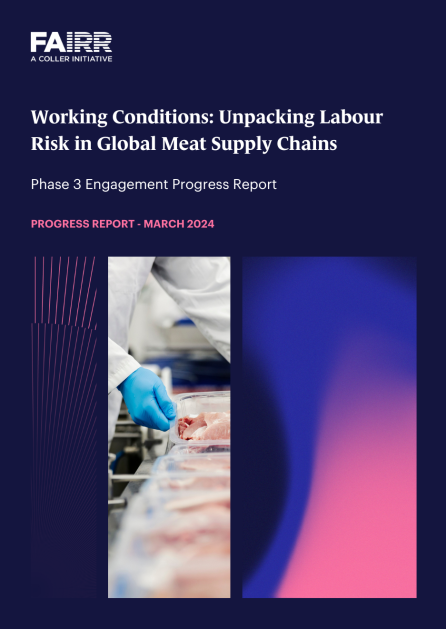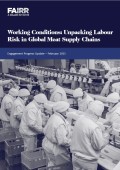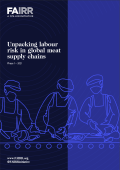Report Overview
Labour risk remains highly prevalent in the meat industry and, with corporate practices not changing quickly enough, the risk is still growing.
Companies in the Working Conditions Engagement recognise that human capital is a key material factor to ensure stable business operations and global food supply, and acknowledge the importance of working conditions in mitigating labour risk. However, the pace of change seen through this engagement and in the wider industry has been too slow, allowing labour risk to consolidate and grow. As a result, labour shortages have intensified, migrant labour reliance heightened, and child labour cases continue to emerge in the US.
Key findings from the engagement are as follows:
Grievance mechanisms continues to be the best performing area of the engagement yet there is room for improvement. All companies report having a channel to file health and safety reports, and three companies now offer detailed disclosure on their resolution process.
Disclosure on economic incentives, specifically sick pay, remains stagnant, with limited improvements since the start of this engagement. Five out of six companies do not disclose enhanced sick pay policies.
All companies report the size of their workforce by contract type to different degrees.
Worker representation disclosure has remained largely stagnant over the past year. Five out of six companies report having internal worker representation through worker committees, though their scope is often limited, and it is largely unclear whether members are elected. Two out of six companies report indirect representation at the board level.
Engaging workers on industry trends. With mounting public and investor pressure to address climate and nature risk, companies are setting ambitious targets without factoring in the potential impact on the workforce, suppliers, or surrounding communities. While all companies recognise a link between corporate strategies and the workforce, no company in this engagement has conducted a social risk assessment of its climate or automation strategy or acknowledged support for a just transition in the food sector.
Report Highlights
The findings of this report can help investors:
Assess the most material areas of social risk in the global meat sector
Understand what key risks meat producers are facing today through in-depth company analysis
Access best and good practice examples of labour and reporting practices
Compare and contrast the engagement companies across a detailed range of factors
Assess specific companies’ performance and progress since the previous year of the engagement
Understand how companies can improve their labour management practices



